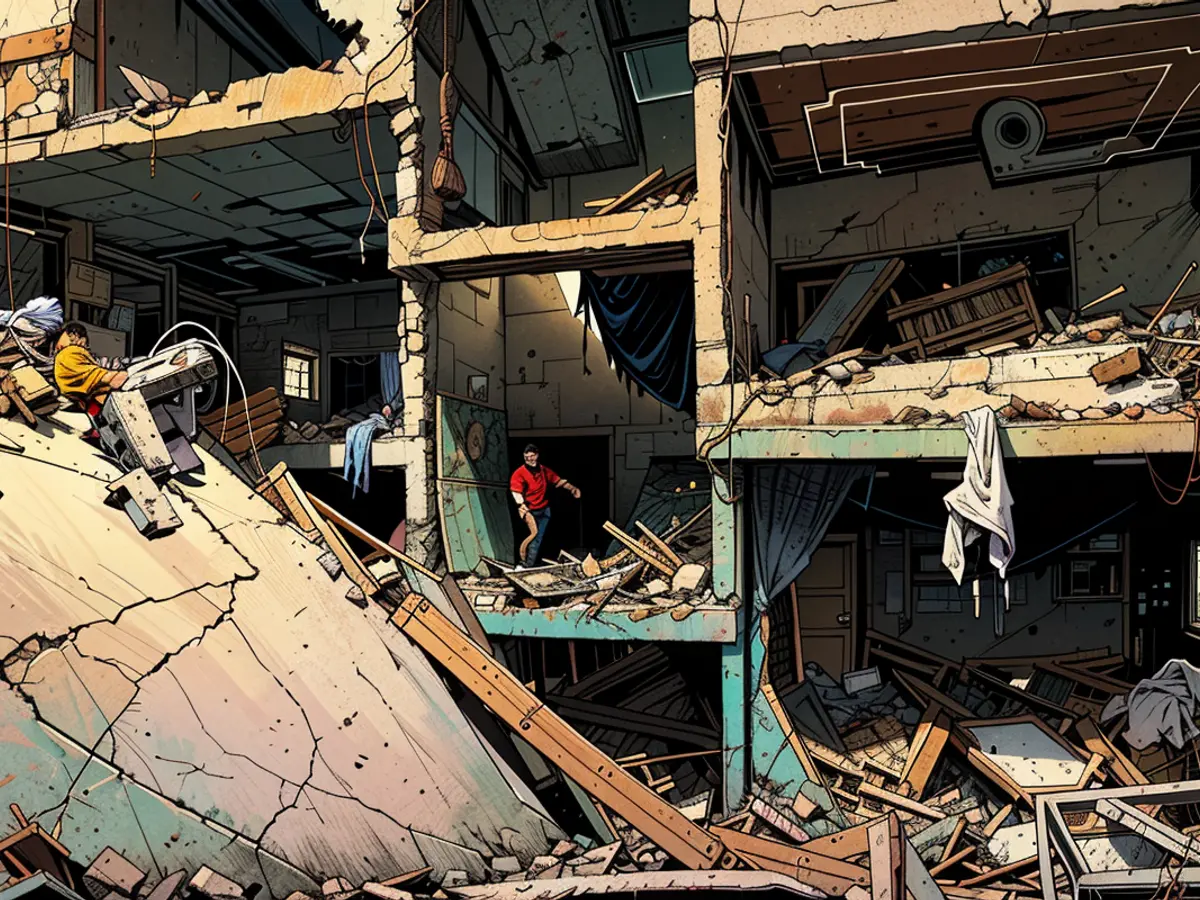Demand for responsibility surges amid October 7 mishaps, yet Israel's leadership appears reluctant to take action.
Protesters in Israel have numerous grievances: a hostage deal, fresh elections, military conscription for ultra-Orthodox Jews, enhanced attention for northern residents, and more. Across Israel, buildings and highways are adorned with signs calling for "Elections Now!" and blaming Prime Minister Benjamin Netanyahu for the situation.
Beneath these protests is a persistent question that continues to reverberate in Israel eight months after October 7th - how the most technologically advanced military in the region, with its sophisticated intelligence apparatus, failed so significantly in predicting the Hamas terror attack?
Calls for a state commission of inquiry into the security and intelligence failures that led to the October 7th disaster have intensified, with widespread public pressure, opposition lawmakers, families of fallen and captured Israeli Defense Forces (IDF) field observers, and the attorney general demanding answers.
Analysts believe that such an inquiry is highly unlikely under Netanyahu's leadership. And even if it happens, the information it provides might not answer the questions the country desperately seeks, as more information surfaces about what Israel knew ahead of the attack.
On Monday, Israel's public broadcaster, Kan 11, added to the mounting evidence that Israel's leadership could have, or at least should have, known an attack was imminent.
Kan 11 revealed a document from Unit 8200, the IDF's top intelligence gathering division, detailing Hamas' plans to target military facilities and communities, and to take between 200 and 250 hostages. The document was dated September 19, 2023, less than three weeks before the October 7th attack. The document's accuracy on one point was particularly striking: Hamas took 250 hostages.
Recent allegations lend credence to reports from the New York Times and Haaretz newspapers in November that military intelligence had information about Hamas' plans to breach Israel's fortifications around Gaza, allowing militants to flood into southern Israel.
In December, State Comptroller Matanyahu Englman announced an investigation into intelligence failures before the October 7 Hamas attack, but he's faced difficulties getting cooperation from the Prime Minister's Office and the Israeli military. Frustrated at the lack of progress, Englman wrote to the Prime Minister's Office and IDF chief of staff that his responsibility was to conduct a comprehensive audit of the country's most significant failure in its history.
Recently, Israel's High Court delayed the investigation following classified arguments from security agencies, leading Englman to question if his team should just hang a "we're on a break, back in two years" sign instead.
Meanwhile, the IDF conducted internal investigations earlier this year into the mistakes leading up to October 7, followed by more limited examinations of specific battles on the day of the attacks. The results of these inquiries are expected soon.
What's missing is Israel's strongest investigative tool - a state commission of inquiry - obstructed by Netanyahu and his allies, who are working to push it until after the war. A state commission of inquiry is an independent body boasting wide powers, including the capacity to compel witnesses to testify.
The primary way to launch such a commission is a government decision, and this government has made it clear it's not on their current agenda.
Professor Raanan Sulitzeanu-Kenan, from Hebrew University in Jerusalem, says the likelihood of an inquiry is almost zero. "Over 17 years of Netanyahu governments, we had zero number of inquiries," Sulitzeanu-Kenan notes. Historically, Israel has had public inquiries approximately every two years, but not under its current and longest-serving leader.
"Although it is very clear that one should be appointed, the political likelihood is almost zero under the current government," says Sulitzeanu-Kenan. "Once you appoint a public inquiry, you send at least an implicit message that something wrong has happened."

In June, Israel's attorney general stated that a commission of inquiry was the "most appropriate legal means" to investigate the circumstances leading up to the October 7th attack. According to Gali Baharav-Miara, such an inquiry could even overrule investigations from "international tribunals," a reference to the International Court of Justice, which is scrutinizing Israel for potential war crimes during its conflict in Gaza.
But Netanyahu's cabinet secretary responded that the country was "in the midst of an intense war."
"The time is not yet ripe to investigate all the events of the war and what preceded it," wrote Yossi Fuchs in response to Baharav-Miara.
State commissions of inquiry can be extensive, particularly if there are questions of systemic failure mixed with issues of personal responsibility, says Yohanan Plesner, Israel Democracy Institute's president.
"When you intertwine all (of) them together, you probably might end up with nothing," Plesner said. The most feasible means of understanding the failures of October 7 was to dissect it into smaller, more manageable issues, like separating intelligence failures from operational doctrine.
"Given the complexity of the situation, the political interests involved, and the era of polarization we now live in," said Plesner, "I'm not sure we'll ever have a definitive response to the question of October 7."
Netanyahu shared with CNN’s Dana Bash in November that he would address "all necessary questions" following the war's end. His stance has remained consistent, denying any accountability for the October 7 catastrophe.
The unwillingness of Israel's self-proclaimed "Security Guru" to acknowledge fault starkly contrasts with the IDF, where senior officers have resigned due to their inability to prevent the nation's worst terrorist attack.
In April, Major General Aharon Haliva, the former commander of the IDF’s military intelligence, announced his departure. After October 7, he admitted there was an "intelligence lapse" in detecting the attack plans. Haliva was the first high-ranking official to take responsibility for mistakes, but not the last.
In June, Brig. Gen. Avi Rosenfeld, the head of the IDF’s Gaza division, voiced his intention to step down. In a public statement, he stated, "Everyone must accept responsibility for their actions." Anticipated resignations from other senior military officials are expected at the conclusion of the IDF’s Gaza campaign.
Former IDF Chief of Staff Gadi Eisenkot, a former member of Israel's war cabinet, stated that everyone in a leadership position should step down, including those from "the IDF's Southern Command, the Military Intelligence Directorate, the IDF Chief of Staff, the head of the Shin Bet, the Defense Minister, and the Prime Minister."
Eisenkot expressed this sentiment to Israel’s Channel 12 news, stating, "The failure is so severe that none can remain in office."
However, with no clear end to the war, accountability seems far off.

Read also:
Despite the ongoing tensions and investigations in Israel, the Middle East and its complex geopolitical landscape continue to impact global economic and political dynamics.
The international community has shown concern over the situation, urging for a peaceful resolution and transparency in the investigations.







